We’ve all been there – that awful burning sensation rising in your chest, making it hard to swallow or even breathe fully. Heartburn is more than just an uncomfortable feeling – it’s downright painful. But you don’t have to suffer. Through trial and error, people have discovered natural remedies that can offer relief for that angry stomach. By taking a look into alternative treatments through a human lens, we hope to provide both understanding and options for relief.
What Causes Heartburn?
An overproduction of acid in the stomach is often to blame for heartburn. But this overacidity has deeper human roots. Stress from everyday life – problems at work, concerns about family members, financial troubles – can contribute to an upset or overwhelmed system. Similarly, eating large meals or lying down soon after eating puts pressure on the stomach and LES (lower esophageal sphincter), increasing the risk of acid reflux.
Human lives are complex, with many demands on our minds, bodies, and spirits. It’s no wonder that the high-speed lifestyle many of us live leaves our digestive systems vulnerable. Finding a natural remedy that nourishes both body and soul can help alleviate daily stresses that exacerbate heartburn.
15 Natural Remedies Offering Hope and Healing
Here are 15 natural remedies for heartburn that many people have turned to for relief, understanding that each person’s path may look different:
Apple cider vinegar
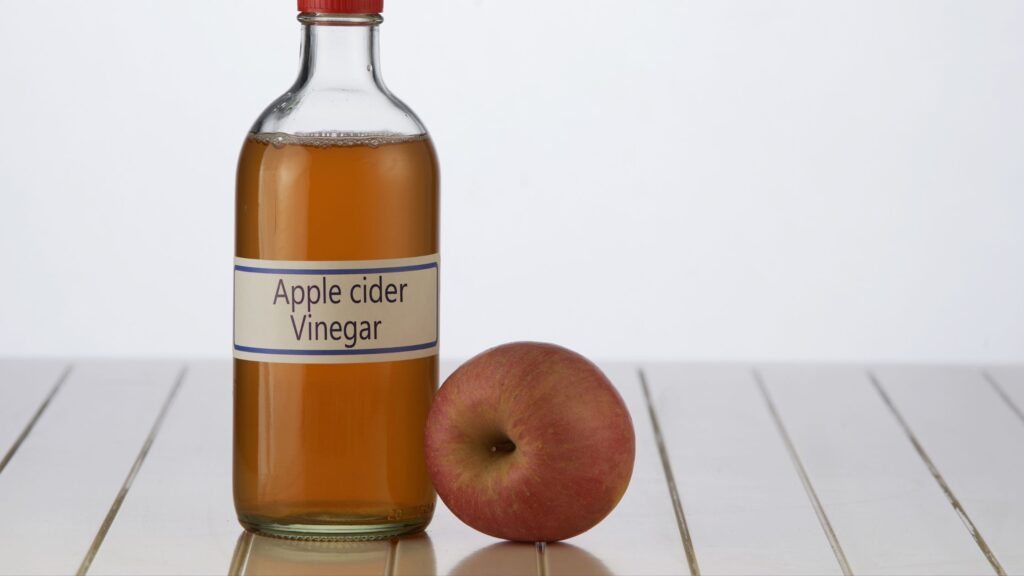
The acetic acid in apple cider vinegar has long been used to aid digestion. When stomach acid levels become excessive, causing that uncomfortable burning sensation, apple cider vinegar can help restore balance. Its acetic acid is thought to reduce excess acid buildup. Many find that mixing 1-2 tsp in a warm cup of water and sipping slowly provides relief. The bubbles distract from pain and within minutes, a calming effect washes over. It’s become a go-to for nights when symptoms flare up severely.
Baking soda

Baking soda, another pantry staple, contains antacid properties. When that fiery sensation hits suddenly, fast action is crucial. Dissolving 1/2 tsp baking soda in water creates a cooling, fizzy drink that goes down easily even when swallowing is difficult. The solution neutralizes stomach acid on contact, soothing pain within moments. The bubbles seem to form a protective coating along the esophagus as inflammation subsides. It’s remarkable how such an old remedy continues to deliver relief.
Chewing gum

Chewing gum after meals encourages more saliva, which helps neutralize acid. When we eat, stomach acid is produced to aid in breaking down food. However excess acid sitting idle can cause issues. Gum stimulates saliva to reduce existing acid levels, keeping things flowing smoothly. The mint flavor also soothes when symptoms arise. Gum’s easy accessibility makes it ideal for impromptu use.
Probiotics

The connection between the gut and overall health is increasingly understood. An imbalance between good and bad bacteria has been linked to conditions like heartburn. Supplementing with probiotics can help restore equilibrium in the gut microflora. This supports holistic digestive wellness and calms stomach irritation over time with consistent use. Given all modern-day stresses, optimal inner ecosystem health just makes sense.
Licorice root
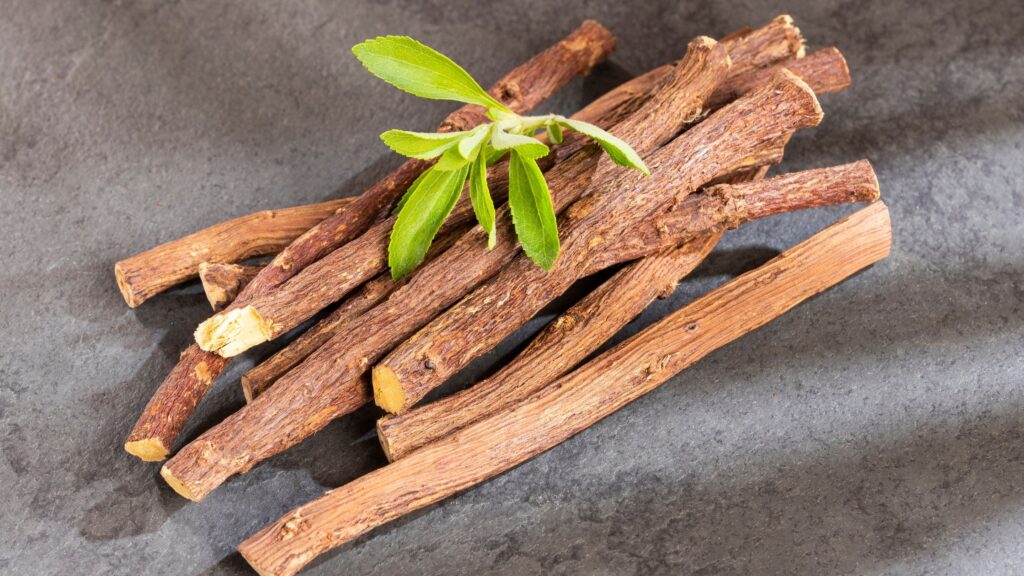
Specifically, DGL, or deglycyrrhizinated licorice root, has a gentle record of calming heartburn thanks to its anti-inflammatory effects. Within an hour, chewing a few lozenges often lessens burning and tightness. Their dissolve coats and soothes the esophagus. DGL provides natural relief that facilitates daily function and comfort. It has much to offer those navigating digestive distress.
Raw almonds
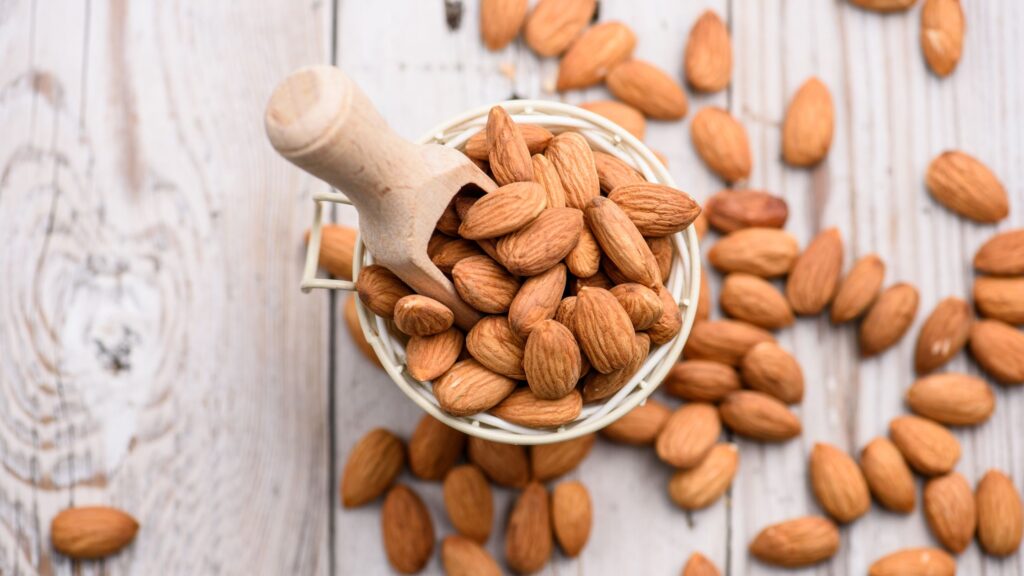
A small handful of raw almonds acts as an antacid for soothing relief. Their high-fat content helps form a protective barrier along the esophagus. Within 20 minutes, stomach irritation usually eases off thanks to this wholesome, satisfying snack. Almonds assist heartburn alleviation while supporting general nutrition. Their continued consumption can provide multiple benefits over time.
Peppermint
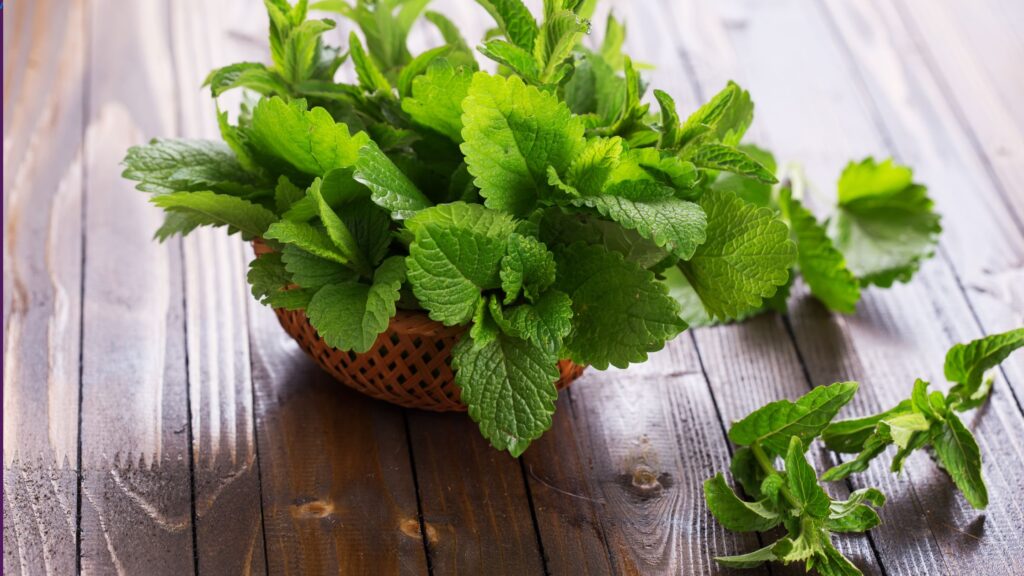
Peppermint’s menthol delivers rapid cooling for inflamed tissues. Through various applications like tea, oil, or candy, its aroma alone seems to relax spasms. Sipping peppermint tea typically cuts burning sensations within minutes as the extract soothes and calms the entire GI tract. Peppermint proves highly effective for periodic upset yet also uplifting through its sweet essence.
A low-acid diet
Certain foods like citrus fruits, tomatoes and their products, chocolate, carbonated drinks, garlic, and onions may stimulate excess gastric acid. Adopting a diet that avoids or limits these irritants prevents symptoms from arising in many cases. When pain does occur, modifying the intake of triggers can restore equilibrium within a couple of hours. Making informed choices supports whole-body ease and wellness.
Papaya
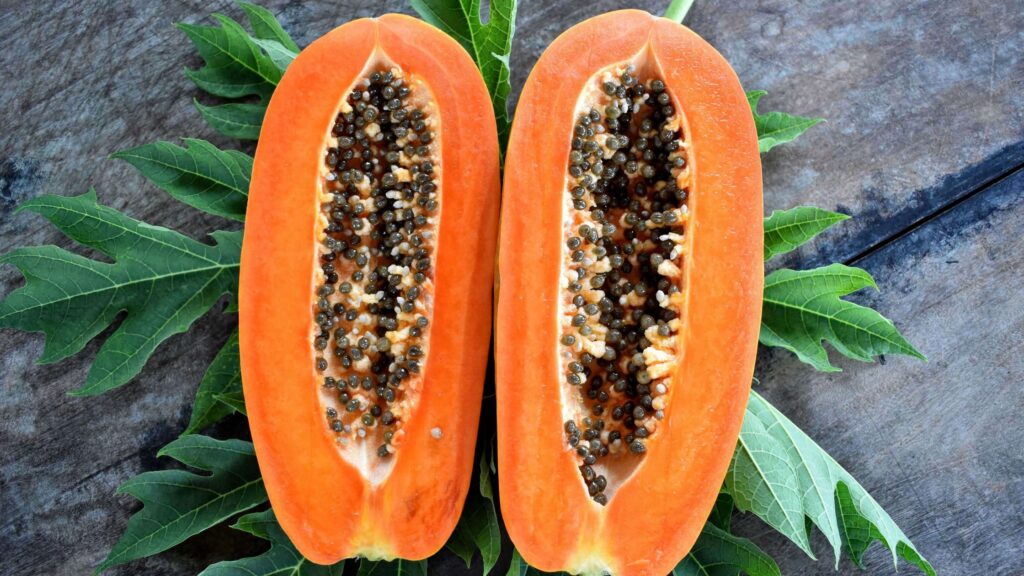
Papaya contains papain and other protease enzymes that aid protein breakdown and food motility in the GI tract. Consuming a quarter of papaya can help where abdominal discomfort arises from undigested contents. Burning or tightness often fades within 2 hours as the enzymes smooth digestion. Nutritionally dense and soothing in effect, papaya offers profile support.
Chewing thoroughly

Taking time with each bite to properly mix food with saliva and enzymes allows for smoother swallowing and transit. Not rushing meals enables more controlled movement downwards. Setting distractions aside also affords “chewing over” potential solutions. Thoughtful eating habits seem key to preventing digestive discord and symptoms over time.
Turmeric
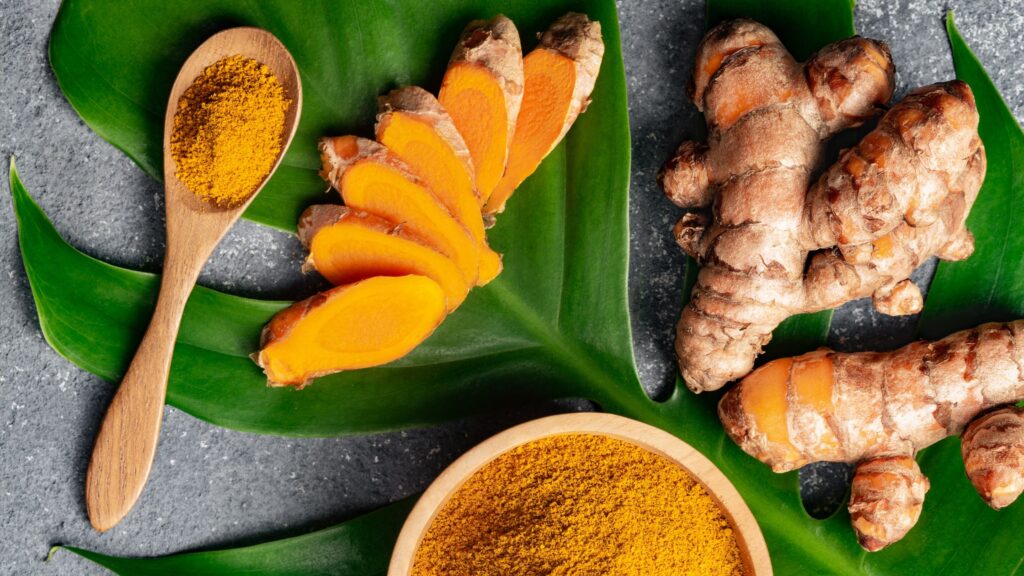
Turmeric contains the anti-inflammatory compound curcumin, making it a useful natural agent for easing stomach irritation. Mixing 1/4 tsp turmeric powder into warm almond or oat milk, along with honey for additional soothing properties and thickness, creates a nutritive beverage. Consumption of this drink typically leads to lessened burning sensations within an hour as turmeric’s properties target inflammation at the root. Its ancient qualities and modern research exploring health impacts give it much promise.
Fennel seeds
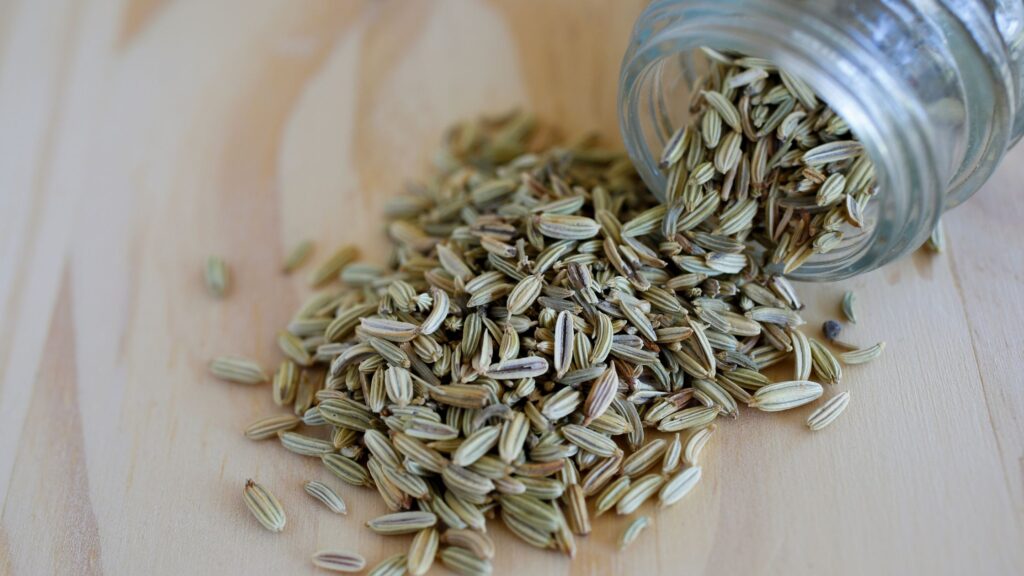
Chewed after meals, fennel seeds deliver carminative aid for intestinal gas and bloating. Reduced pressure on the lower esophageal sphincter then relieves potential backflow of acid. Their sweet anise flavor also calms the mind during times of discomfort. Effects are often noticed within an hour as the entire GI tract settles. Fennel seeds constitute a simple addition with meaningful benefits.
Ginger
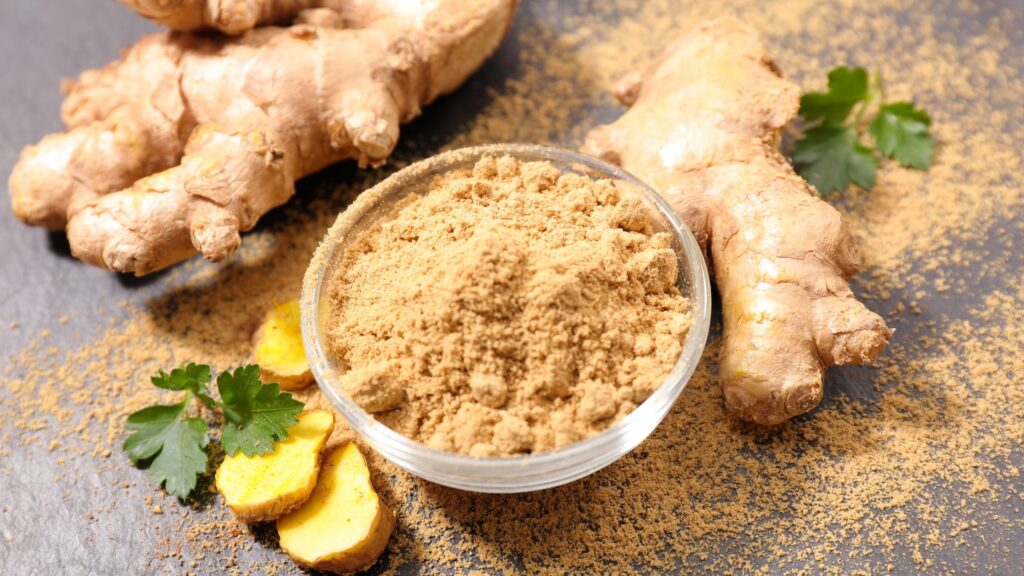
As an anti-inflammatory herb, ginger contains compounds that decrease stomach inflammation and relax the lower esophageal sphincter to prevent reflux. Enjoying warm ginger tea with local honey provides a twofold soothing effect both internally and psychologically. Relief usually manifests within 30 minutes as burning fades and swallowing becomes easier. Ginger’s picaresque properties continue to prove its worth across time.
Low-fat diet
A diet lower in fatty, fried foods relieves stomach strain by producing less excess acid. While temptation abounds, especially during social gatherings, focusing plate selections on nutrient-dense whole foods requires dedication but nourishes health in full. Not only does this support heartburn management, but overall wellness as an added boon.
Avoid late eating
Finishing the final meal a few hours before sleep allows full stomach digestion sans pressure. When the digestive system gets adequate downtime overnight undisturbed, symptoms show diminished frequency long term. Making small adjustments to daily routines can yield significant impact on quality of living.
Seeking Relief Through Perspective and Understanding
While occasional heartburn shouldn’t cause major alarm, chronic symptoms affecting daily life warrant medical guidance. Trying natural remedies allows empowerment over our health journey. With compassion for human experiences, alternative options meet discomfort with care, comfort, and hope. Life’s complexities mean finding what nourishes body and spirit varies greatly between individuals. May these remedies provide a starting point for personalized relief and improved quality of living.




